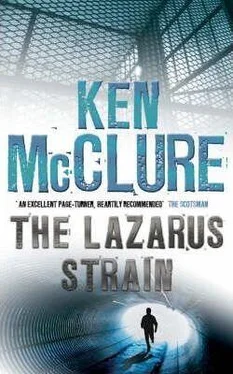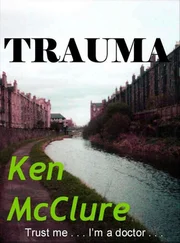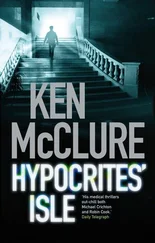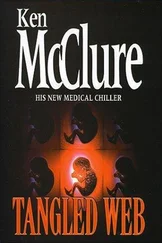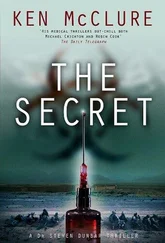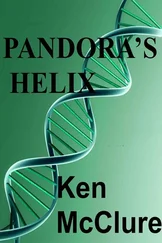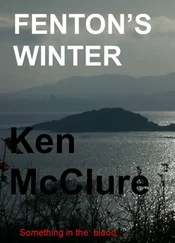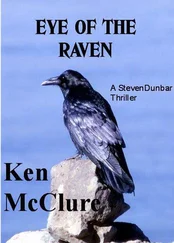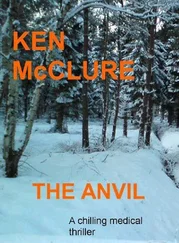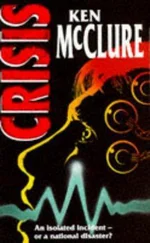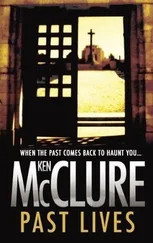A plague on all their houses, thought Steven as he gunned the MG past a slow moving tractor. There was without doubt a place for secrecy in government but all too often it was being used as a smokescreen for incompetence.
‘Just one of these things, I suppose,’ replied Cleary when Steven inquired about his health. ‘Right as rain now.’
Steven wondered briefly about confession being as good for ‘upset stomachs’ as it was reputed to be for the soul; before asking Cleary if he was aware that a special safe had been installed for Devon to keep the Cambodia 5 virus in.
Cleary shook his head. ‘News to me but I suppose Tim couldn’t have told us anyway.’
‘You’d think it would be difficult to install something like that without anyone being aware of what was going on,’ said Steven.
‘Perhaps it was done over the weekend or in the middle of the night,’ suggested Cleary.
‘I suppose,’ said Steven. ‘This may seem like a daft question but any idea where it might be?’
Cleary looked perplexed. ‘I’m ashamed to say that I haven’t,’ he said. ‘I haven’t noticed anything new appearing in any of the labs and there’s certainly nothing like that down in any of the animal rooms. I can’t understand why the Department of Health man didn’t say anything about this when he was here at the weekend. You’d think he would at least have mentioned the presence of a secret virus store!’
Steven snorted. ‘DOH obviously thought that they could keep everything secret at that time. They hoped they might get away with everyone thinking that the animals were infected with “just flu” — although you going through Devon’s desk must have given them a bad moment.’
‘It didn’t do me a lot of good either,’ said Cleary. ‘It was a bit of a shock, I can tell you.’
‘But the fact that you didn’t let on what you’d discovered must have encouraged them to push their luck,’ said Steven.
Cleary picked up on the accusation. ‘I had no idea what was going on,’ he said. ‘I didn’t know what to do. I take it DOH has now come clean about their involvement?’
Steven nodded. ‘Most people confess immediately after they’re found out and break open a bottle of regret.’
‘Why don’t you just call DOH and ask where the virus safe is,’ suggested Cleary.
‘Call it inter-departmental rivalry but I’d rather hoped to find it without having to ask them. Could it be in the professor’s office?’
‘I don’t recall Tim having any work carried out in there in recent weeks,’ said Cleary. ‘Although, in view of what we said about the weekend or middle of the night, maybe that’s not surprising. I did notice that he had a couple of new filing cabinets when I was going through his papers…’
Steven smiled. ‘Shall we take a look?’
Cleary got out the key for the Devon’s office, which he’d been keeping in his own desk drawer and they went along the corridor to Devon’s room, slaloming between workmen’s ladders and equipment, trying to talk above the noise of drills.
It went quiet again as Cleary closed the office door behind them. ‘These two in the corner,’ he said, indicating two metal, three-drawer units in civil service green. ‘They’re new.’
Steven pulled out the top drawer of the first cabinet and found nothing more sinister than alphabetical file holders holding general information files about safety and fire regulations. There was also a thick folder on Home Office rules regarding the housing and use of experimental animals. Much the same applied to the next drawer and the next: routine paperwork. Steven was beginning to think that they were just everyday office filing cabinets when he pulled out the bottom drawer of the second cabinet and was left with a false drawer front in his hand. ‘Well, this is different,’ he said, pulling back a secondary inner leaf to expose the door of a small safe with a red LED blinking on and off at one second intervals. It looked heavy and secure and had been cemented into the floor, its electrical connections enclosed in armoured sheathing.
‘Bloody hell, this was built to last,’ said Cleary when he bent down to take a look. ‘You’d need a small nuclear device to open it.’
‘I suppose that was the general idea,’ said Steven. ‘Unless of course, you had the keys…’ He pointed to the two key-card slots in the front door. One of the cards had been left in its slot. ‘That was careless.’
‘That’s not like Tim to do something like that,’ said Cleary. ‘But I suppose it didn’t matter too much when you have to have the second one present before you can open it. Maybe he just kept the card there.’
‘No,’ said Steven, shaking his head emphatically. ‘He would have been instructed never to do that. Leaving one card in place destroys the whole point of the thing. As it is, it’s just an ordinary safe that anyone can open if he can get his hands on the other card. Leaving one key there is a big no no. Devon would have been told that.’
‘I take your point, said Cleary.
Steven thought for a moment before saying, ‘But it is interesting to hear you say that doing something like that would be out of character for the professor…’
‘Tim was an absolute stickler for protocol and detail,’ said Cleary.
‘Do you have a plastic bag?’ Steven asked
‘Sure, I’ll just get one.’
‘And forceps too,’ said Steven.
Cleary returned a few moments later with a roll of small plastic bags and a pair of forceps, still in their sterile wrapping, the black stripes on the special sealing tape indicating that they had been through autoclave sterilisation. He handed both to Steven who’d put on surgical gloves — there was a box of them at the side of the small hand-basin in the office. ‘Just in case it wasn’t the professor who left the card in the slot…’ he said. He extracted the key-card with the forceps and dropped it into a plastic bag.
‘I take it, this means you are going to take this key away with you?’ said Cleary, watching Steven seal the bag.
‘Yes,’ said Steven.
‘What if DOH should come to call, wanting to reclaim their virus?’
‘You can tell them Sci-Med has the other key.’
‘They will be pleased,’ said Cleary.
‘It was more embarrassment I was hoping for,’ said Steven. ‘This was a crazy operation from the outset.’
Two days later, Steven was requested to attend a meeting of high level officials from the Department of Health, the Ministry of Defence and the Security Service. Just before they went in, Steven asked Macmillan why he thought Sci-Med had been invited to attend.
‘Maybe it’s the cynicism of my years,’ said Macmillan. ‘But intuition tells me that we are about to be asked to co-operate.’
‘In what?’
‘In keeping our mouths shut,’ replied Macmillan.
Nigel Lees from DOH, who had obviously been detailed to clear up his own mess, convened the meeting. He opened by ‘regretting’ what had happened at the Crick Institute. They had had a difficult decision to make and in the light of unforeseen events it had turned out to be ‘ill-advised.’
Steven noted that he had avoided using the word ‘wrong’.
‘When I offer you an explanation for our actions, I hope you will accept that what we did was for the best of motives and very much in the long-term interests of the public.
Steven noted that ‘he’ had also become ‘we’. He and Macmillan exchanged cynical glances.
‘When Dr Malcolm, our man on the World Health Organisation vaccines committee, approached us and stressed the immediacy of the problem regarding bird flu we felt that we should act rather than just table it for consideration in the future. We approached Professor Devon and I suppose it was our hope,’ Lees cleared his throat and continued, ‘that he would be successful in designing a vaccine against avian strains of influenza in time for incorporation into the vaccine schedule for next year. As you are probably aware, the decision as to what flu strains to use in vaccine preparation has to be made as early as possible. In view of the warning from the WHO about the imminent high risk of an outbreak of a form of the disease to rival the 1918 pandemic, we thought it imperative to pursue this course of action with vigour.’
Читать дальше
